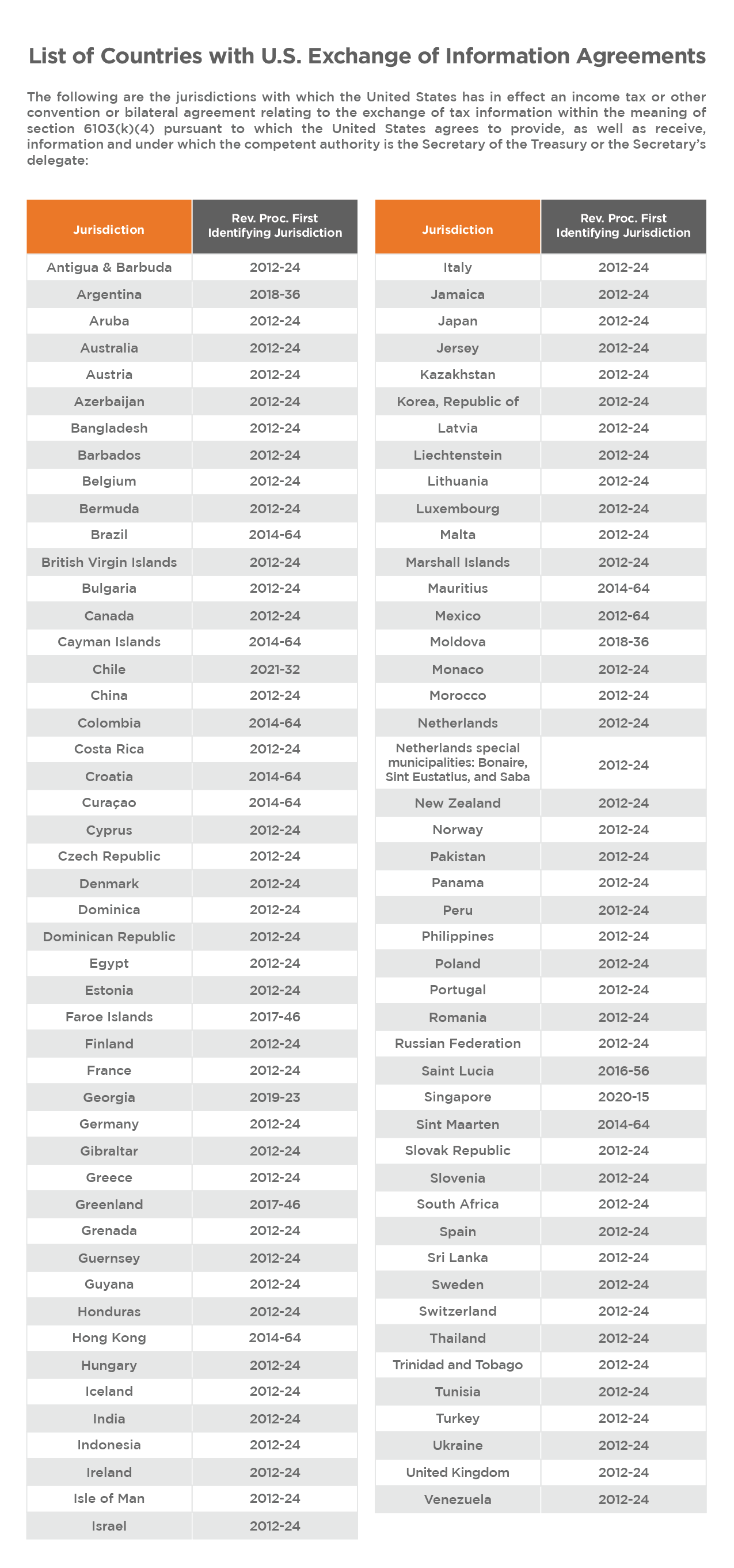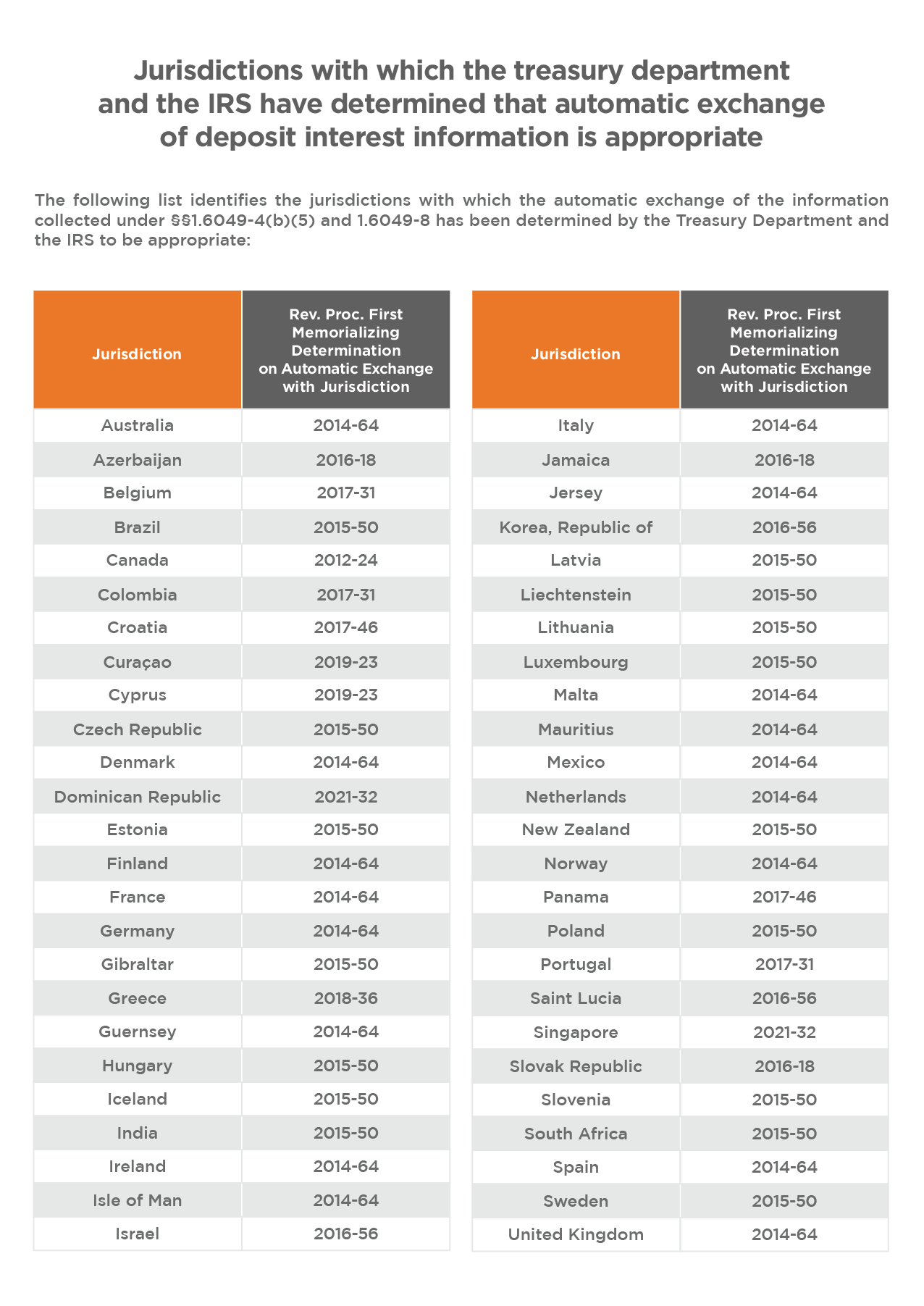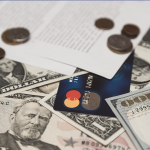Updated List of Tax Information Exchange Treaty Countries for 2021
The United States has updated the list of countries with which it has a tax information exchange agreement. This is a list of countries that share bank account information with the US IRS to ensure global tax compliance of US persons. The US also shares information with foreign governments to ensure global tax compliance.
That is to say, this is a list of countries with which the US shares bank account information. If you are not an American, and you have a US bank account, your account information is not private. This is the 2021 updated list of tax information exchange treaty countries.
The first section of the list below indicates which countries have tax treaties with the United States. In most cases, this list indicates which countries will provide information upon request. The same goes for information from the United States… the country must usually file a formal request… thus, the inquiry is part of a major investigation.
The second part of the list indicates which countries have an automatic exchange of bank account interest income. If your country is on this list, it means that your bank reports your interest income to the IRS and the IRS automatically gives that information to your home country.
The additions to the 2021 updated list of tax information exchange treaty countries are as follows:
Chile has finally given up the fight and entered into a tax treaty with the United States. This is a standard treaty and not one that includes the automatic exchange of interest income information.
In addition, Singapore and the Dominican Republic have agreed to the automatic exchange of interest income information. Note that Singapore and the Dominican Republic are now listed in both sections, standard tax treaties and the automatic exchange of information.
I should note that, just because the IRS can get information about your foreign accounts, it does not mean that they can levy those accounts (take money from your foreign bank account). In most cases, the IRS can only seize assets in Canada and the UK.
Also, if your foreign bank has a branch in the United States, the IRS can seize money from the foreign branch. For example, if you have an account at HSBC in Hong Kong, the IRS can issue a levy notice to HSBC in New York, which compels the New York branch to get your money and give it to the IRS.
If you would like to see a standard tax treaty, have a read through the United States Model – Tax Treaty Documents.
These treaties give a major advantage to offshore banks in the US territory of Puerto Rico. Per § 3(I) of the sample treaty, and most if not all US treaties, the territory of Puerto Rico is exempted from these tax information exchange agreements. Thus, banks in Puerto Rico do not need to disclose account information to foreign governments.
To clarify, international banks in Puerto Rico do report to the United States IRS, but this information may only be used to tax US persons. It is not to be provided to foreign governments, something that the OECD and CRS have been fighting for years without success.
I also note that, unlike US banks, it’s relatively easy for non-US persons to open a bank account in Puerto Rico. There are several banks on the island that will open an account online and through their mobile app. These are fintech banks focused on international markets.
It’s difficult for non-US persons to open accounts at US banks. Because of regulators from FDIC, US banks are for US persons. However, FDIC does not apply to banks in Puerto Rico and these international banks can accept clients from anywhere in the world.
In fact, banks in Puerto Rico can open accounts for anyone anywhere in the world, including US residents and citizens. The only limitation is that international banks in Puerto Rico can’t compete with the local banks and thus can’t provide accounts to companies or persons located in Puerto Rico.
- Of course, banks in Puerto Rico must follow all US rules and may not provide accounts to persons from sanctioned countries or individuals on sanctioned lists.
For more on the stats of international banks in Puerto Rico, see How Many International Banks are there in Puerto Rico.
For information on setting up a bank in Puerto Rico, see Start a Bank in Puerto Rico in 10 Steps.
To clarify, banks in Puerto Rico do not provide any extra privacy or protection to US persons. The rules for US persons in Puerto Rico are the same as it is at any US bank. The benefits described above apply to non-US persons who wish to keep their accounts private.
I hope you’ve found this article on the 2021 updated list of tax information exchange treaty countries to be helpful. For more information on opening accounts in Puerto Rico, or on setting up a bank on the island, please contact me at info@premieroffshore.com.





